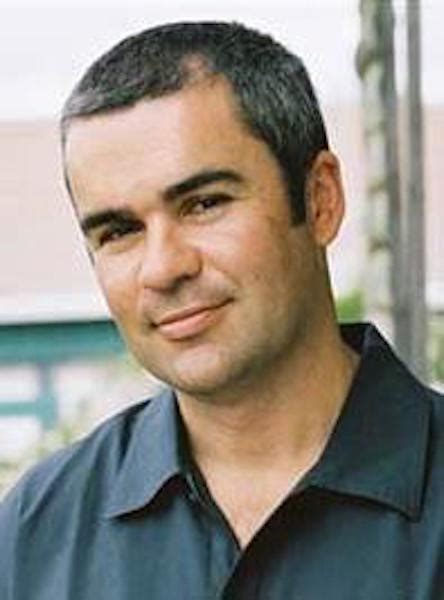A Quote by Richard Dawkins
I think that's the mother and father of all cop-outs. It's an honest scientific quest to discover where this apparent improbability comes from. Now [Francis] Collins says, "Well, God did it. And God needs no explanation because God is outside all this." Well, what an incredible evasion of the responsibility to explain. Scientists don't do that. Scientists say, "We're working on it. We're struggling to understand."
Related Quotes
I don't think God is an explanation at all. It's simply redescribing the problem. We are trying to understand how we have got a complicated world, and we have an explanation in terms of a slightly simpler world, and we explain that in terms of a slightly simpler world and it all hangs together down to an ultimately simple world. Now, God is not an explanation of that kind. God himself cannot be simple if he has power to do all the things he is supposed to do.
Scientists rightly resist invoking the supernatural in scientific explanations for fear of committing a god-of-the-gaps fallacy (the fallacy of using God as a stop-gap for ignorance). Yet without some restriction on the use of chance, scientists are in danger of committing a logically equivalent fallacy-one we may call the “chance-of-the-gaps fallacy.” Chance, like God, can become a stop-gap for ignorance.
You ask people, do you pray to [a person or] God. If you say yes to that, you're religious by, presumably, anybody's standards of your conduct. And it's the yes to that question that applies to 40% of scientists. So, there're plenty of atheists who are scientists or not scientists. There maybe a conflict but many people in this country coexist in both worlds.
I am not religious, but I am a pious man... A religious man has a definite religion. He says "God is there" or "God is there," "God is there." "Your god is not my god, and that's all." But the pious man, he just looks out with awe, and says, "where is God?" And "well, I don't understand it and I would like to know what this creation really means." That is a pious man, who is really touched by the greatness of nature and of the creation.
What it does remind us is that 'God' is not to be separated from the quest for the Kingdom of God and is not and cannot be the object of any detached 'scientific' contemplation. Heidegger's critique of onto-theology is also driving a wedge between speaking of God and the aims of science - not so as to get rid of God but rather to free God from a false objectification.
God has given us a gift in Jesus Christ. And people don't understand: it's for our benefit. One of the things that says, "For unto you is born this day a savior." They say, "Well, I don't need a savior." Believe me: if you didn't need one, God wouldn't have sent it. Because he wouldn't have wasted the time.
Does it mean, if you don't understand something, and the community of physicists don't understand it, that means God did it? Is that how you want to play this game? Because if it is, here's a list of things in the past that the physicists at the time didn't understand [and now we do understand] [...]. If that's how you want to invoke your evidence for God, then God is an ever-receding pocket of scientific ignorance that's getting smaller and smaller and smaller as time moves on - so just be ready for that to happen, if that's how you want to come at the problem
Mr. Langdon, I did not ask if you believe what man says about God. I asked if you believed in God. There is a difference. Holy scripture is stories...legends and history of man's quest to understand his own need for meaning. I am not asking you to pass judgment on literature. I am asking if you believe in God. When you lie out under the stars, do you sense the divine? Do you feel in your gut that you are staring up at the work of God's hands?


































